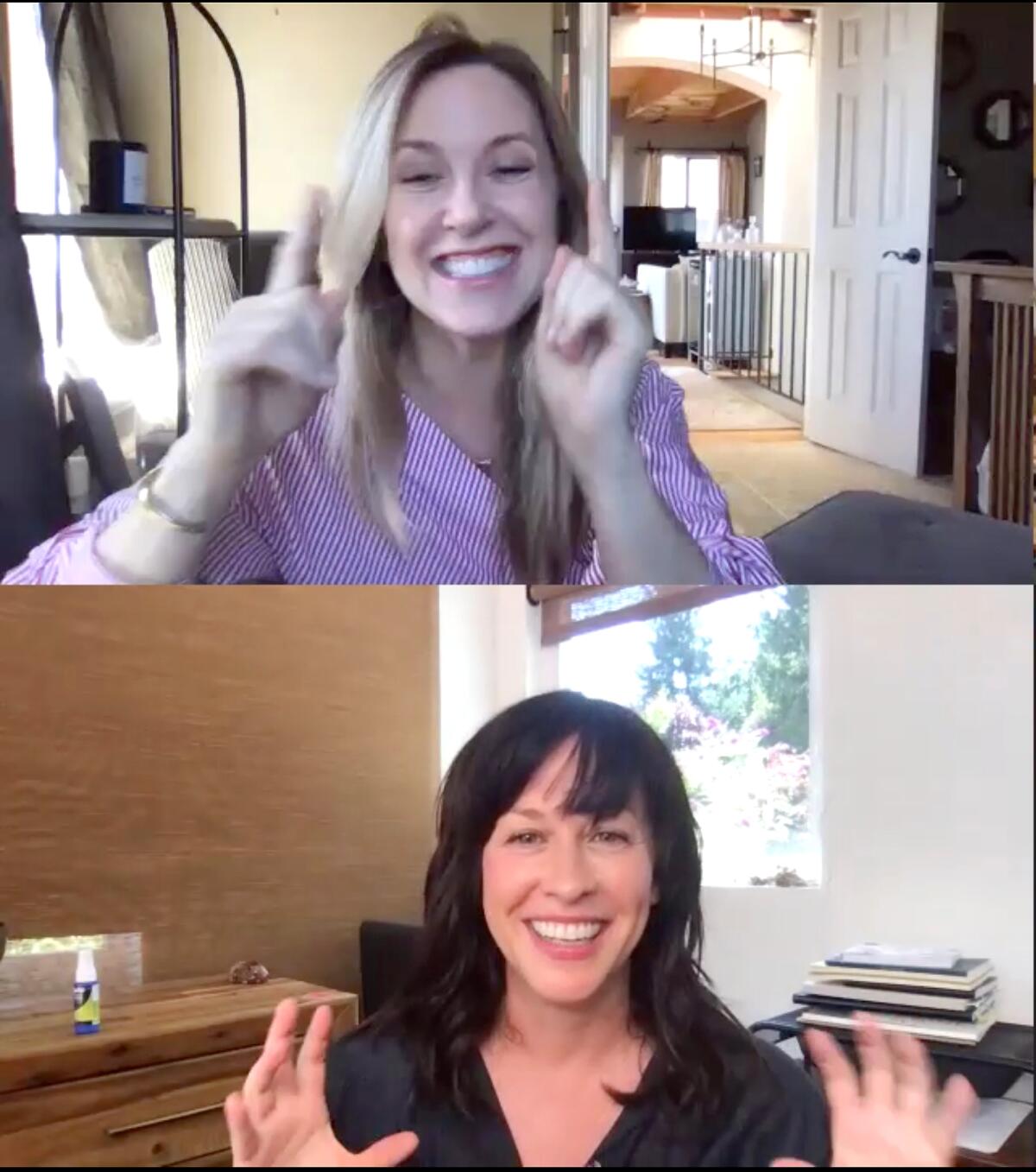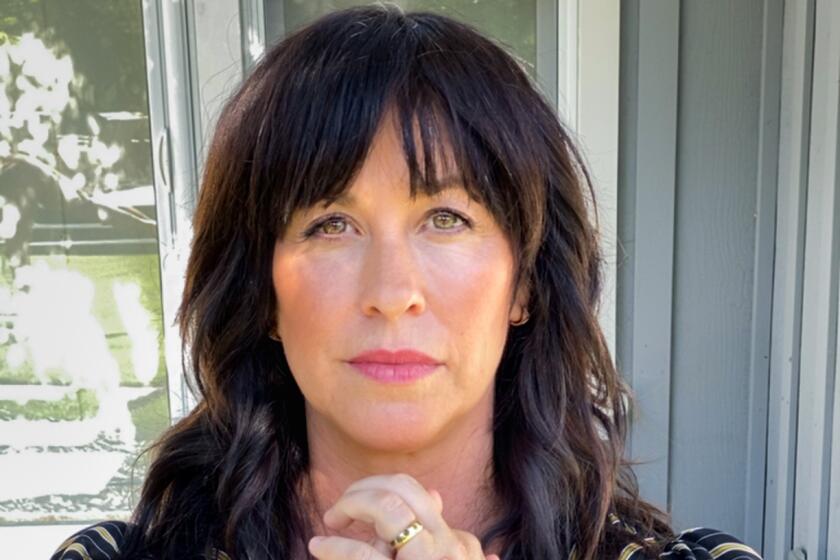When Alanis Morissette and Liz Phair reunite on Zoom, a female critic looks back on guyville

- Share via
It took a pandemic and Zoom to bring Alanis Morissette and Liz Phair together for an interview, but once they saw one another on-screen, little else was needed for the songwriters to open up about the creative process, patriarchy, parenting and their respective histories shaping music and shattering ideas of what female artists should and shouldn’t say on record.
“There’s still time to drop trou,” Morissette, 46, joked after Phair announced, “I was considering not wearing bottoms,” once the cameras went live.
The two musicians, who were scheduled to tour this summer before the COVID-19 pandemic waylaid their plans, were clearly happy to see one another. “I miss you,” exclaimed Phair, 53, whose guitar could be seen leaning on the wall behind her in her Los Angeles home. “It seems like it’s been forever.”
And in a sense, it has. Their collective history as outliers who challenged the status quo of pop and indie rock dates back to the early ’90s.
It’s been 25 years since Morissette’s “Jagged Little Pill,” with its blockbuster breakup anthem “You Oughta Know,” seemingly dropped out of nowhere. The Canadian 21-year-old funneled her heartbreak and rage into each song, railing against an ex-lover with passion, vitriol and brazen sexuality. Women embraced its raw honesty, while many male critics tended to describe it as “spiteful,” “seething,” “jealous bile worth hearing” — and that’s from a positive review.
Phair’s “Exile in Guyville” debuted 27 years ago, when grunge was a thing and indie rock mattered. The Chicago-based singer fashioned her album as a track-by-track reply to the Rolling Stones’ “Exile on Main St.,” but from the perspective of the women they sang about. It spoke to a generation of women starved for a female perspective in the dude-centric world of alternative music, another version of Guyville.
Though stylistically different, the two performers represented a breakthrough in the record industry for women with agency and anger.
Liz Phair was supposed to be on tour with Alanis Morissette right now. Instead, she’s interviewing the “Jagged Little Pill” star for The Times.
“One of the things Alanis and I have in common is that we both were chicks in a male world, writing from the point of view of being more than just a girl,” said Phair. “We were writing the female experience, but we were also writing as humans, unafraid to embrace humanness. In our songs, we are accusatory of transgressions against us, but we are also openly critical of ourselves, and we were working through those issues in public.”
Big feelings are not what the world was used to hearing from young women when Morissette morphed from an aspiring dance-pop sensation to a serious artist. “When I was a kid, it was like I [wasn’t allowed to] be angry, I couldn’t be scared … couldn’t be sad, so my songs are angry and filled with anxiety,” she said from her home in Los Angeles, where she lives with her husband and three children. “When people meet me, they’re like, ‘You’re not quite what I expected.’ Well, it’s because my songs are taking care of all the stuff back here.”
Morissette and Phair externalized the internal in songs long before #MeToo, breaking down barriers for female musicians and aspiring music journalists like myself.
My career as a music critic took off in the 1990s when publications such as this one needed writers who could decode Morissette and Phair. As absurd as that sounds, there were hardly any female rock writers, which was problematic, given the girl power movement and the rising tide of women in rock.
Artists like Bikini Kill and Hole were railing against the patriarchy, but with few female critics to consider their work, the ideas behind their “raw” voices were often ignored. In the case of Morissette and Phair, many male writers would spend an entire review deconstructing the “explicit sexual nature” of their lyrics, i.e. blow job references in both their songs. There was more to it, if only they had a girl to weigh in … Thus my career took off.
Now, I’m a TV critic, but I moderated the recent interview with these two game changers because A) I love them and B) there’s still an unfortunate dearth of female music writers on staff at national publications. Speaking purely out of self interest, there are perks to underrepresentation.
Sitting in on the interview with Liz and Alanis felt like coming home. We are old acquaintances at this point. I interviewed them both for their breakthrough albums, and several times over the decades that followed. We faced many of the same issues in an all-male industry — being underestimated, dismissed, harassed, maligned. I feel as if we came up together.
Hearing their perspectives on the last few decades, as creators, mothers and exceptionally perceptive human beings, was worth jumping beats and patching a gender gap (again). It was good to be reminded of what it means to succeed against the odds, from two women who did just that by way of their sheer talent and passion.
“You made it big at such a young age,” Phair said to Morissette near the close of their chat. “How did you handle it as well as you did? I’m sure that you have a lot of private information that you don’t share. But from the outside, you handled it beautifully.”
“Well, thank you,” said Morissette. “I love that. I love that we’re still alive.”
More to Read
The complete guide to home viewing
Get Screen Gab for everything about the TV shows and streaming movies everyone’s talking about.
You may occasionally receive promotional content from the Los Angeles Times.








